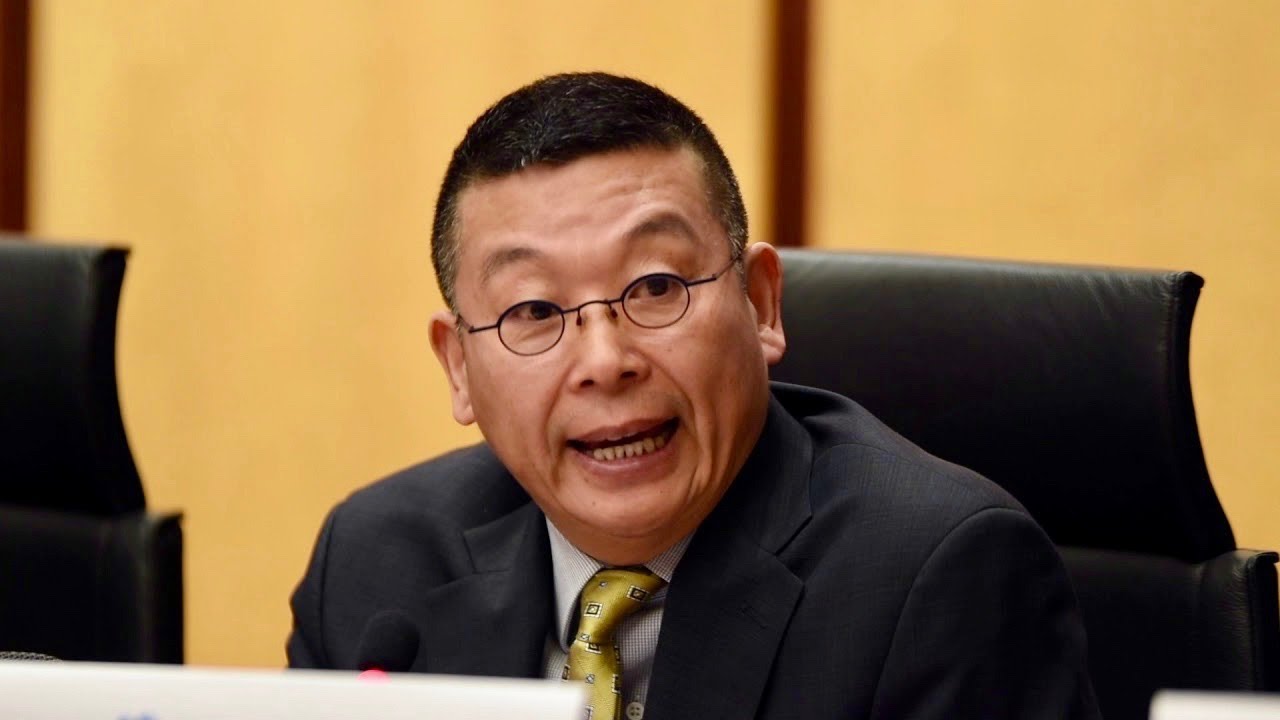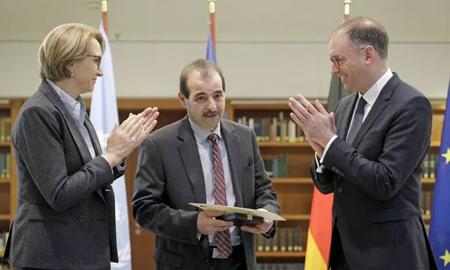A Chinese dissident who survived solitary confinement and torture by composing poems has a simple message for those now holed up in quarantine: You are stronger and more gifted than you think you are.
Yang Jianli was interviewed by Marjan Greenblatt.
Mathematician and human rights activist Yang Jianli was jailed in China between 2002 and 2007, having returned from the United States to support the nascent labor movement.
Yang survived the Tiananmen Square massacre in spring 1989 and had not set foot in the country since then. In the intervening years, he had gone on to complete two PhDs at Berkeley and Harvard and established a non-profit organization, the Foundation for China in the 21st Century.
Yang was blacklisted by the People’s Republic of China for his political activities and in 2002, found he could not renew his passport. He used a friend’s passport to return to the country.
On arrival in China Yang was arrested and imprisoned. He was kept in solitary confinement for almost 15 months, facing bouts of intermittent torture and interrogation.
In an interview with IranWire, Yang recounts the “animal life” he was reduced to in isolation – and the imaginative tools he equipped himself with in order to survive.
“It’s not the solitary confinement prisoners in this country would know,” he says, speaking from his home in the US. “There are no books to read, no paint and paper to write. Nobody to talk to, except the interrogators.”
Wracked with incessant anxiety and guilt at having come to China rather than spend the Boston summertime with his children and family, Yang says he “almost collapsed” and resorted to daily prayer.
Then, he says, “I tried to remember some complicated English words I’d had to learn in the US. I tried to test how well my memory was still functioning. To my dismay, I couldn’t remember those words. That scared me. So I resorted to writing poems in my head.”
Night by night, lying on the stiff board that passed for a bed, Yang would spend up to three hours composing poems. In the end he wrote more than 100 poems of varying lengths and memorized every word. It became a coping mechanism throughout his five years of detention.
As a result of pressure from US politicians and lawyers, Yang was finally released from prison in April 2007 and returned to the United States in late summer.
Along with millions of others he is now self-isolating at home and re-engaging with drawing, calligraphy and other hobbies to pass the time. While quarantine is nowhere near as punishing or extreme as solitary confinement in a Chinese prison, Yang’s detention has given him a rare insight into how to make the most of the current predicament.
Firstly, Yang says, people self-isolating due to the coronavirus need to accept this is the “new normal” in order to reduce their anxieties and begin to thrive.
“Everyone has something that he or she has long decided to do, but never found the time to do. This is your time,” he says. “Reading is the minimum – and writing, if you like. You can do painting, drawing, a lot of things.
“You will probably find you are more equipped, more gifted and stronger than you thought you would be. When I was in solitary confinement, when I began to write a poem, I never imagined I could be so proficient. This is a very special time given by God. Teach yourself, deepen yourself, find more value and new meaning in your life.”
He also recommends spending time with children, something he regrets not having done in the past: “They will be very sweet,” he says.
Finally, Yang says those in quarantine should not lament or dwell on their circumstances over-much, but be pragmatic about the situation they are in.
“Don’t complain to God,” he says. “Try to tell yourself: ‘Everybody suffers. Why not me?’.
“We suffer as human beings, together.”
Read other articles in the series:
Tales of Isolation, Creativity and Survival
Dissident Writer: I Survived Hell on Earth in Cuban Prisons
Turkish Writer: I Dreamed Up Novels in High Security Prison
Syrian Lawyer and Activist: Shared Goals Help Us Through Confinement
Environmental Activist: Stories and Song Made Russian Cells Bearable
Korean-American Kenneth Bae Says Faith and Family Helped Him Endure Two Years of Hard Labor
Accept, Create and Tolerate: An Iranian Activist Reflects on Confinement
Shiva Nazar Ahari: Solitary Confinement and Quarantine both Isolate You from Society
Mazyar Ebrahimi: No one insults you in quarantine. But in solitary confinement...
Former Prisoner Siamak Naderi: Small Miracles Happen in Isolation





























comments